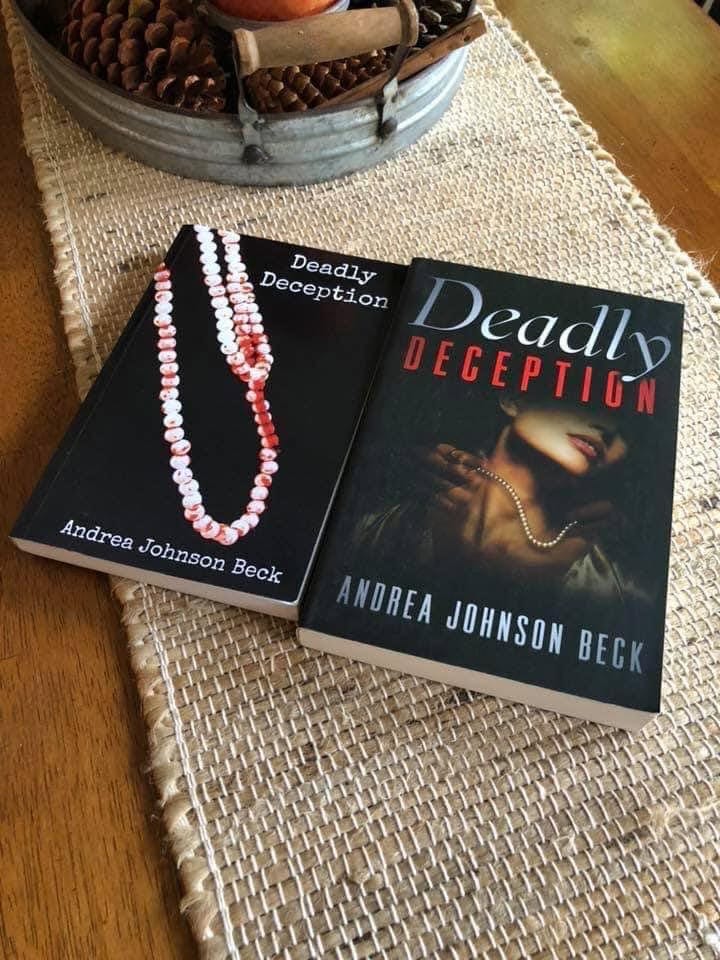The Firestorm
Part Two
In Part One, I discussed how my author life unfolded. Part Two is how it exploded…
There I was, on a video call with Montlake Romance, discussing the traditional publishing of my little book. Before I knew it, I was signing a contract.
I couldn’t believe it.
I was in my early thirties, sitting in my kitchen in North Carolina, and suddenly, I was a traditionally published author. It felt out-of-body, surreal—like I was watching someone else’s life unfold. I announced it to the world on social media, giddy and terrified all at once.
At the time, I had nearly finished Book Two in the Deadly series. What Montlake didn’t realize when they first read Deadly Deception was that it wasn’t quite long enough for their publishing standards. Their idea? Combine the first and second books into one expanded debut. I was all in.
They assigned me a professional editor, and from our first conversation, I adored her. We clicked instantly—our collaboration felt easy, intuitive, almost magical. Together, we tore both books apart and stitched them back together, turning chaos into something new.
I had readers waiting for the sequel, people who had preordered and messaged me about release dates, but I had to pull the book down and announce that Deadly Deception was being reworked for traditional release.
Montlake sent over mockups of cover designs—polished, cinematic, breathtaking. I didn’t have to format my own book, design my own cover, or troubleshoot weird paragraph indents at midnight. (The original cover, Logan and I made ourselves in our kitchen—complete with fake blood, pearls, and questionable lighting.) Now I had a team. And there was to be an audiobook! What?!?!
To see my name listed alongside authors I admired, some of my literary heroes, gave me chills. Goosebumps. It felt like every late night, every tear, every ounce of hope I’d poured into that book had been worth it.
But here’s the thing: I didn’t have an agent.
I didn’t have a mentor.
I was figuring it all out as I went—fumbling through contracts, promotion, and expectations.
Publishing is a constantly shifting universe; the rules change daily. One minute, you’re celebrated; the next, the algorithm forgets your name. It’s not just about storytelling anymore; it’s about exposure, marketing, platform, and luck.
When Deadly Deception relaunched, I didn’t have a book tour or sponsored events. Every signing, every appearance, every mile driven was paid for by me. And I did it with pride because it was mine. But underneath that pride, I started noticing cracks in the glitter.
There’s a dark side to publishing that few talk about.
Back then, the community was buzzing with gossip, rumors of authors buying reviews, fake accounts trashing competitors, “street teams” organized to review bomb books on Amazon or Goodreads. Scandals erupted weekly: plagiarism accusations, smear campaigns, “book boy” drama. The same industry that promised creativity and connection had a ruthless underbelly that fed on insecurity and envy.
People told me not to read my reviews.
But of course, I did. Almost every author does, even when we say we don’t. It’s human nature, we crave validation, but what we often find is venom.
Still, when my new publishing date finally arrived, it was joy.
Pure, unfiltered joy.
I received flowers from my husband, my family, even from Montlake Romance. Deadly Deception was reborn into the world. I cried. I celebrated. I threw a release party downtown with my friends—the second floor of this little martini bar with a live jazz band and glittering lights.
For one perfect night, I was exactly who my younger self dreamed I’d become:
a traditionally published author, sitting at a table surrounded by love, laughter, and the people who had believed in me from the beginning.
And then… the “bestselling” part happened.
That’s when everything came crashing down.


